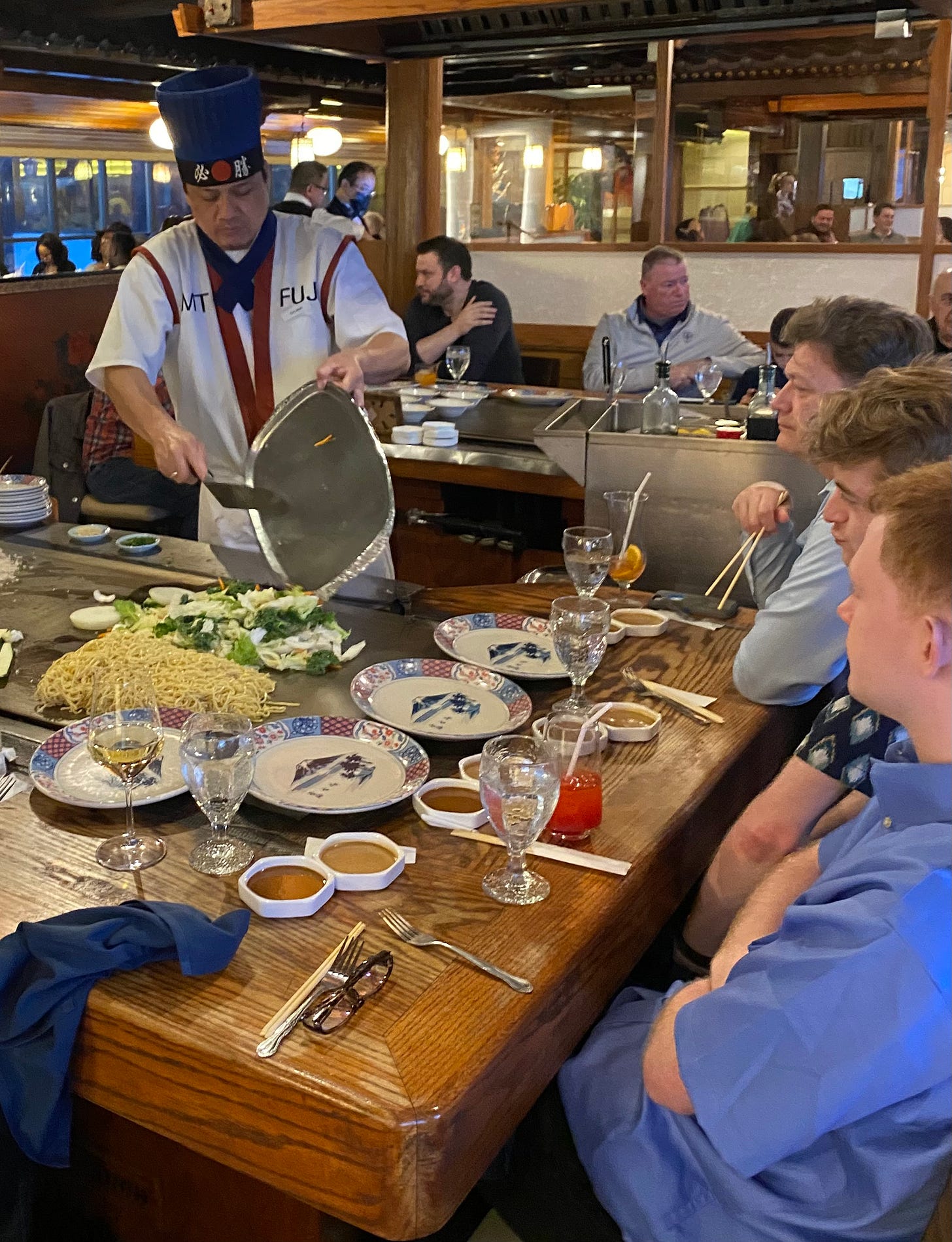Steve Silberman’s 2015 book NeuroTribes: The Legacy of Autism and the Future of Neurodiversity made a splash by popularizing the notion that autism is not a disability but part of the natural diversity of human life, and sometimes even, a super ability. Temple Grandin, the autistic animal expert, related in her memoirs how she had struggled with social skills throughout her life, but then used her disabilities to create a unique career.
In The Way I See It, Grandin speculates, “What would happen if the autism gene was eliminated from the gene pool?” There would be no science, no tools, no development, she believes. “You would have a bunch of people standing around in a cave, chatting and socializing and not getting anything done.” According to Grandin, autistic people may be bad at chit-chat, but they are very good at building things.
As this concept of neurodiversity grew in popularity among the chattering class over the past two decades, we saw thousands of articles of books and articles about the unique gifts of autistic people. Some even belief that ancient cave art was the work of autistic artists. New organizations championed autistics speaking for themselves, while older autism groups fell into disfavor. Even some forms of therapies were now considered torture.
At this moment, there are two dominant philosophies for autism education. One is the “Make Them Fit In” philosophy, which involves hours and hours of drills, charts, repetition to make the autistic child appear to be typical. Pros: It works for some, if done intensely and at a young age. Cons: It’s expensive and requires specialists to implement these methods effectively. Noone is really sure if it’s possible to pound autism out of a person.
The second philosophy is “Let Them Be and Make the World Change.” So, if a kid wants flap his hands, then he should be allowed to do it. If a person finds lights too bright, then a workplace should make adjustments. If a teen doesn’t want to talk, but wants to play video games all day, then deal with it. Pros: This method is cheap and kind. There are no temper tantrums. Differences SHOULD be appreciated in society. Cons: Reality. I’ll explain.
Because Ian wasn’t diagnosed with autism until five, and was high functioning enough to be in a regular public school, he had very little of that “Make Them Fit In” philosophy. Nobody ever worked on his autistic quirks at school. After school, I sent him to Kumon, rather than a behaviorist. Because of that lack of training, Ian can get an A in pre-Calculus, but he can’t hold down a job at the local burrito restaurant. He’s just too odd.
One of his Ian’s many quirks is that he hates saying “please” and “thank you.” He tells us that the waitress will bring his burger and fries, without him having to bother saying the word, “please.” For Ian, those niceties are illogical, redundant, and unnecessary, and he refuses to do them. However, his rigidity is a problem in the real world.
The small businesses that operate in our town cannot afford to employ people who don't conform to their expectations. If Ian can’t smile and make some polite greeting to customers, the burrito joint will not hire him. And Ian cannot smile and chat on demand.
Another one of Ian’s challenges is that he argues with his manager about things. He might disagrees with some practice in the burrito joint or find a spelling error on the menu. A burrito joint can handle a person with a lower IQ, who quietly and methodically moves a box from point A to point B. But a small business owner does not want to hear from its lowest level worker that they are doing everything wrong. In many ways, minimum wage jobs are harder for an autistic person than other jobs; they involve higher social skills and more conformity.
Now, at the grand age of 20, he is finally getting behavioral training at a job training program. They are trying to make Ian be less autistic. We’re hoping that Ian can do well enough in his college classes, so he can find other jobs that do not require the niceties of a burrito joint. But in the short term, he has to learn how to blend.
The world is not ready for neurodiversity. Colleges and workplaces will not accommodate the autistic mind. There are a handful of large businesses that are striving to create specialized workplaces for autistic workers, but most workplaces operate like the local burrito joint. They just want to make a buck and aren’t running a charity.
Given these realities, transition programs have to put social skills on the front burner. They have to create behavioral goals, strategies, and assessment tools to help the student fit in, especially for higher functioning students, who may have missed all that therapy in the past. They need staff that knows how to employ those methods. Families may need training to reinforce those skills at home. Some students benefit from stays at residential programs that drill the students on social skills 24/7, and the public schools will have to pay those tuition fees.







My youngest son is "quirky." He wasn't disgnosed until he was 28, having had--and lost--many jobs due to lack of social cues and sensory issues. The idea that one needs to be "less autistic" to function in the world seems more about the attitude of others than someone who is different. Would we ask someone with visual issues to be "less blind"? Yes, the world is not ready for our quirky guys. And that's their loss.
Hi, just a thought on this section from the autistic male perspective (diagnosed at 40)
"The small businesses that operate in our town cannot afford to employ people who don't conform to their expectations."
Isn't that a sad reflection on the business community though? There's a difference between being sociable when working a counter at a restaurant (which in my opinion is an expectation of the job) vs. pointing out typos on a menu. Frankly, you'd think feedback to improve the menu to make the restaurant more professional would be a sign of an employee taking initiative to improve the business (especially when that's not their pay grade) rather than a slight and to me is a sign of insecurity on the manager and owner's part. Here's a thought...pick your battles. Yes, you can have an expectation of socializing when being in a customer facing position. But what do you gain when you belittle an employee who's trying to help over something small like a typo? If I couldn't afford a full re-print of the menu, you could at least say "Hey Ian, good catch. Unfortunately to re-print everything right now is more money than I can afford to pay right now, but I'll fix it next time?"
But this is why I have a very dim view of the small business community. They seem to be perfectly happy with mediocrity. They have zero problem taking handouts from the government when it's their turn, but when employees go looking for a cost of living improvement the old "no one wants to work anymore" line comes out. Or they'll pay autistic and other disabled employees less, because the law allows it. A sad reflection on capitalism, really. These people have been conditioned that capitalism equals they make money, no matter what. Which is not how it's supposed to work, at all.